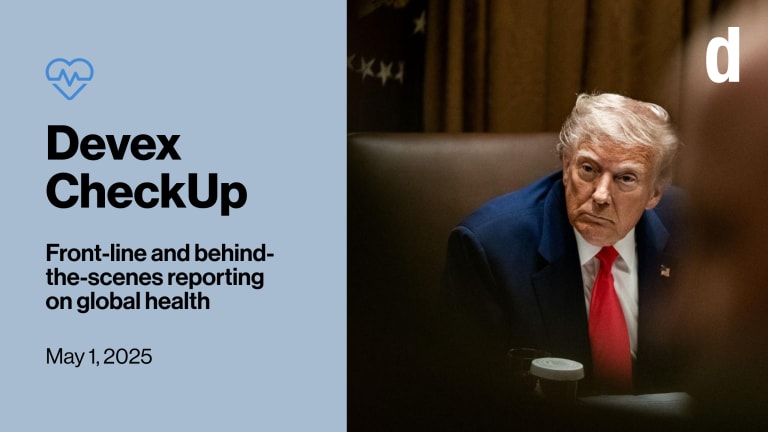
ALICANTE, Spain — Global Handwashing Day has long been a calendar fixture, but experts say this year may mark the first time it has been given due attention, which should be used to build on the momentum created by COVID-19.
Leaders and the development community should seize on the high-level political interest in the preventive role of water, sanitation, and hygiene to help reach Sustainable Development Goal 3, which includes hand hygiene, said Juste Hermann Nansi, Burkina Faso country director at the IRCWASH. “This year is special as we have to learn from what is happening with the COVID-19 pandemic,” he said in a message to mark the international day.
Taking place each year on Oct. 15, Global Handwashing Day is used to encourage people to improve their hand-washing habits. Poor sanitation and hygiene can lead to diarrheal diseases, respiratory infections, and cholera, as well as neglected tropical diseases such as trachoma, schistosomiasis, and leprosy.
“We can’t afford to return to business as usual when the virus no longer poses a threat; that’s why this Global Handwashing Day is so important.”
— Ray Norman, global sector lead for WASH, World Vision InternationalAs the coronavirus — which can be staved off through frequent hand-washing — continues to be felt across populations, it could be argued that hand-washing has never been so prominent a topic. Often forgotten, this year may be the first time that some governments have given serious thought to the impact that a lack of hand hygiene can have, said Tim Wainwright, chief executive of WaterAid UK.
Yet rather than focusing on just the hand-washing component, Antoinette Kome, global sector head for water, sanitation, and hygiene at SNV Netherlands Development Organisation, said this year the message is to elevate the importance of WASH as a whole. Three billion people continue to live without access to a hand-washing facility with soap and water at home, and 2.2 billion people do not have access to clean water.
“We are calling for global leaders to ensure communities and health care facilities have these essentials to protect people during this pandemic and build resilience to future global health crises,” Wainwright said. WaterAid UK is using the day to continue calling for governments to urgently scale up investments in WASH, with a specific focus on hand-washing facilities in health care facilities, schools, and other public places.
While governments and organizations have mobilized some resources to scale up access to hand-washing facilities and educate around the need for improved hand-washing habits, WASH professionals remain unsure that better hand hygiene will last beyond the pandemic.
Is better hygiene here to stay?
In a bid to keep COVID-19 at bay, more hand-washing is taking place than ever before. But without increased efforts and investment, experts are not sure that this will last beyond the pandemic to impact other diseases.
“Crucially, creative and compelling messaging is desperately needed in many communities to motivate people to adopt hand hygiene as a lifelong habit,” said Ray Norman, global sector lead for WASH at World Vision International. Governments, community and faith leaders, the private sector, and others who can influence hygiene habits must also take the lead in this, he said.
For George Greene IV, CEO and president at Water Mission, the solutions are there, but more collaboration is needed to reach people at a faster pace.
Around the world, organizations are mobilizing to ensure Global Handwashing Day does not go unrecognized. In Burkina Faso, IRC is broadcasting a live show explaining why, when, and how to practice hand-washing, while SNV country partners are hosting a series of webinars to exchange knowledge and contribute to building “hand hygiene road maps.”
“We can’t afford to return to business as usual when the virus no longer poses a threat; that’s why this Global Handwashing Day is so important,” Norman said, adding that what the global community does or does not do to sustain hand-washing now could save or kill millions.




